Special Report
27 Effects of Climate Change That Can't Be Stopped
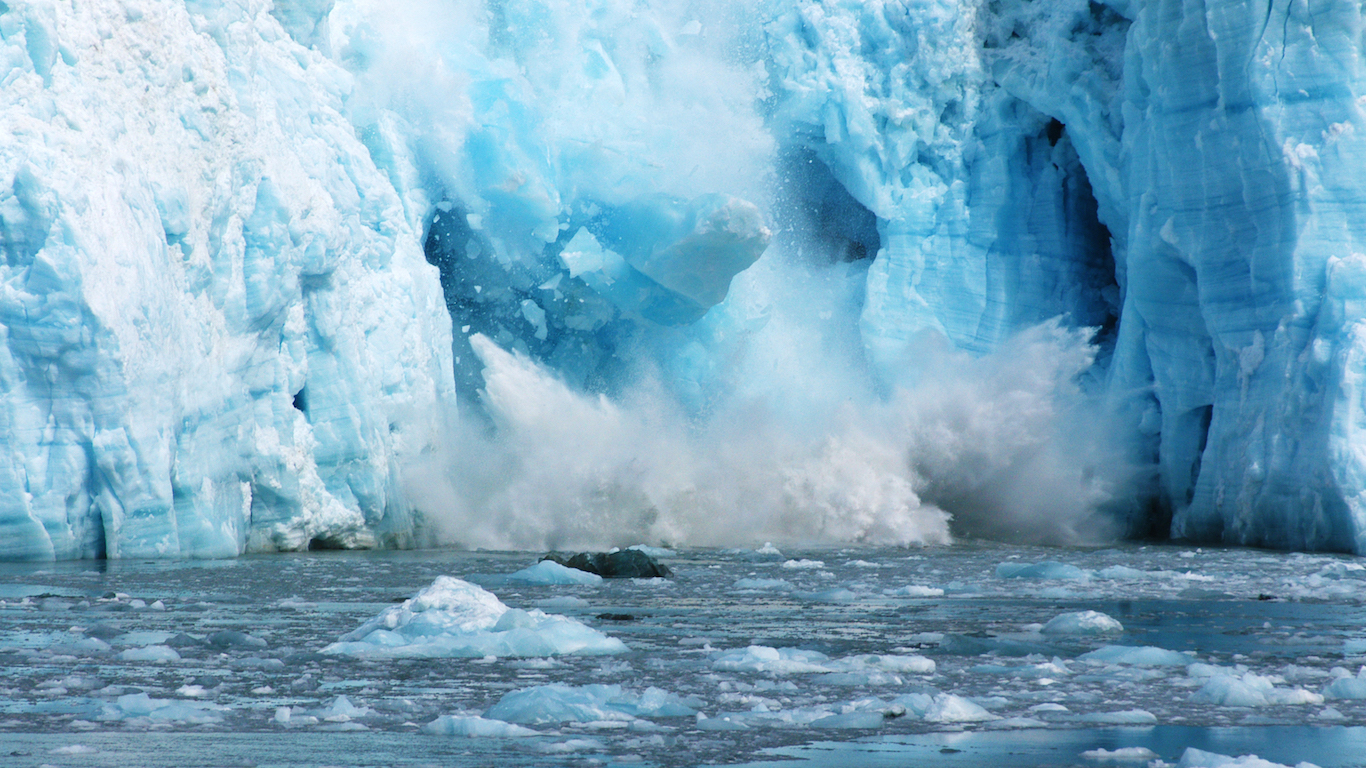
Published:
Last Updated:

The Intergovernmental Panel on Climate Change, a U.N. body, released a report in late 2018 highlighting the importance of keeping global warming to 1.5°C above pre-industrial levels. To date, average global temperatures have already increased by 1°C. The report details how much worse the effects of global climate change would be should temperatures increase by 2.0°C celsius or higher.
The IPCC press release states that limiting global warming to a 1.5°C increase — about 2.7°F — “would require rapid, far-reaching and unprecedented changes in all aspects of society.” Indeed, climate scientists estimate it would require massive reductions in greenhouse gas emissions almost immediately, and zero global emissions by 2050.
The global community is nowhere near to making that goal a reality, particularly as the United States, one of the largest carbon emitters, has announced its intention to withdraw from the Paris Climate Accord, which it will do in 2020. Many experts are saying that the globe is already locked in at a 2.0°C increase, the point at which the consequences will become much more severe.
But should a major change occur in the immediate future and global warming is halted at that 1.5°C target, it is important to note that this does not mean the effects of global climate change on the Earth and its population will not be serious. Already, the approximately 1.0°C increase has had severe impacts on the globe’s weather, sea levels, and ecosystems. When 1.5°C is reached, which could happen as early as 12 years from now, the impacts, as determined by scientists and experts around the world, are projected to be disastrous.
24/7 Wall St. consulted reports by groups such as the IPCC, NASA, the National Oceanographic and Atmospheric Association, the U.S. Global Change Research Program, and more, to identify the effects of global warming that either have already taken place, or will occur even if warming is limited to a 1.5°C increase.
Click here to see the 27 impacts of climate change.

1. Carbon dioxide levels above 400 ppm
The concentration of global atmospheric carbon dioxide now exceeds 400 parts per million (ppm), a level that hasn’t been seen in about 3 million years.
[in-text-ad]
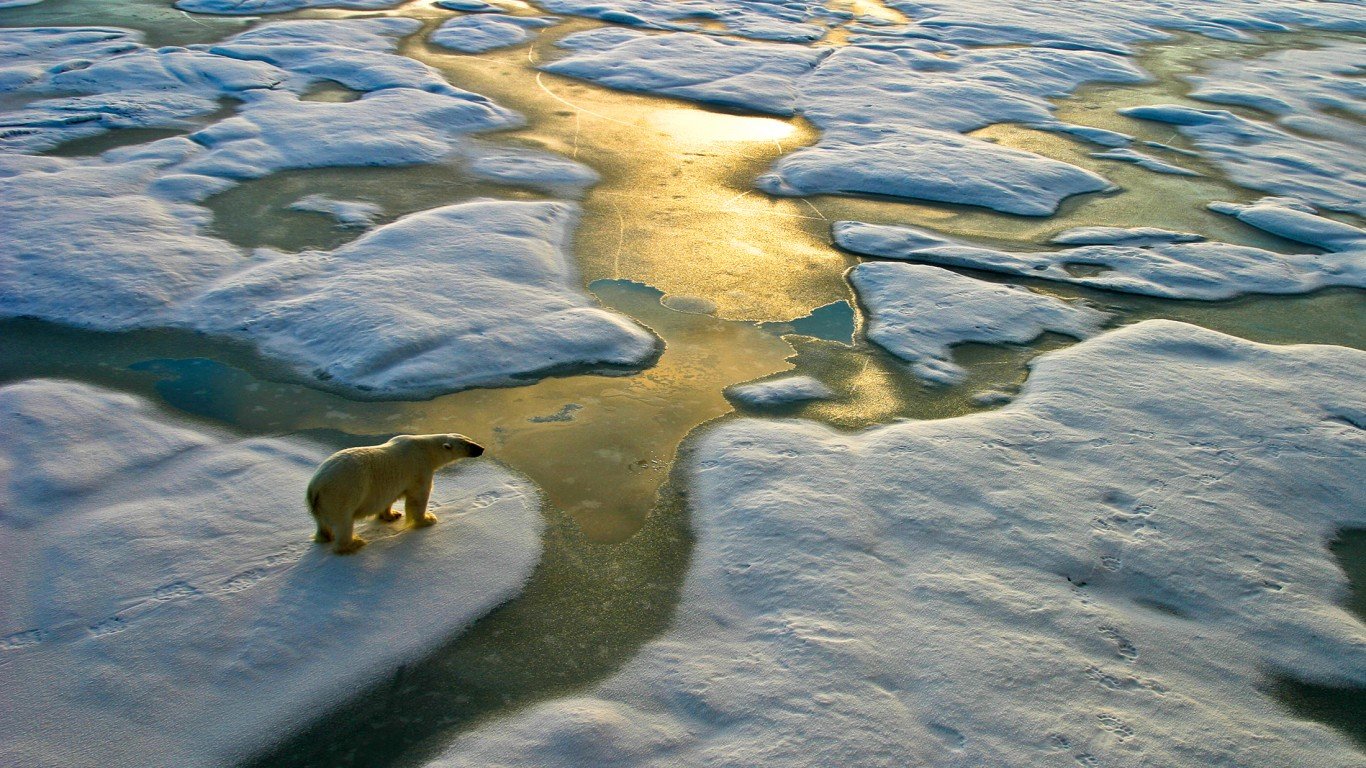
2. Global warming so far: 1.0°C
Over the past 115 years, roughly since the period of human industrial production, surface temperatures have increased by approximately 1.0°C, or 1.8°F. Even such a small increase has had drastic effects.

3. Record heat
Since the year 2000, nearly every year has been one of the hottest on record. The five warmest years on record have all occurred since 2010.
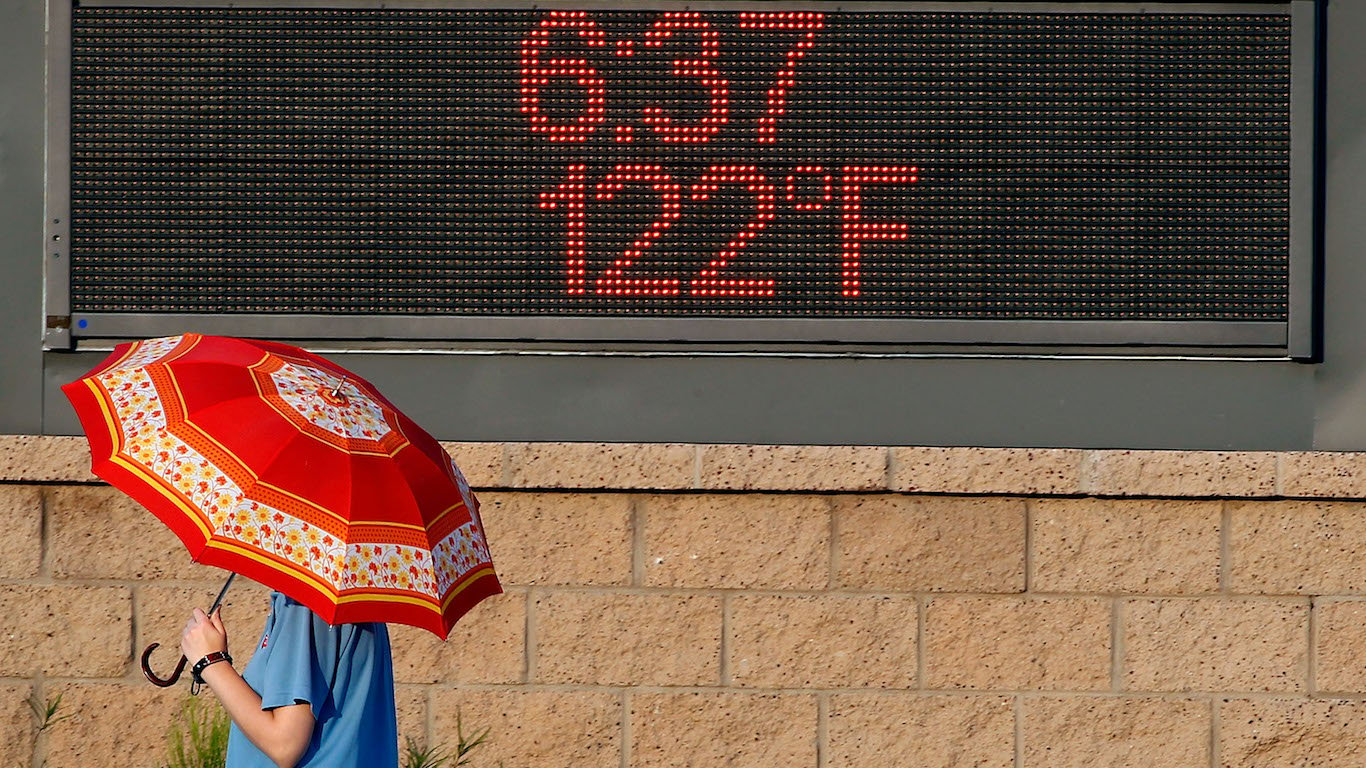
4. Hotter in the US
In the United States, the number of record daily high temperatures has been roughly double the count of record daily low temperatures in the 2000s.
[in-text-ad-2]
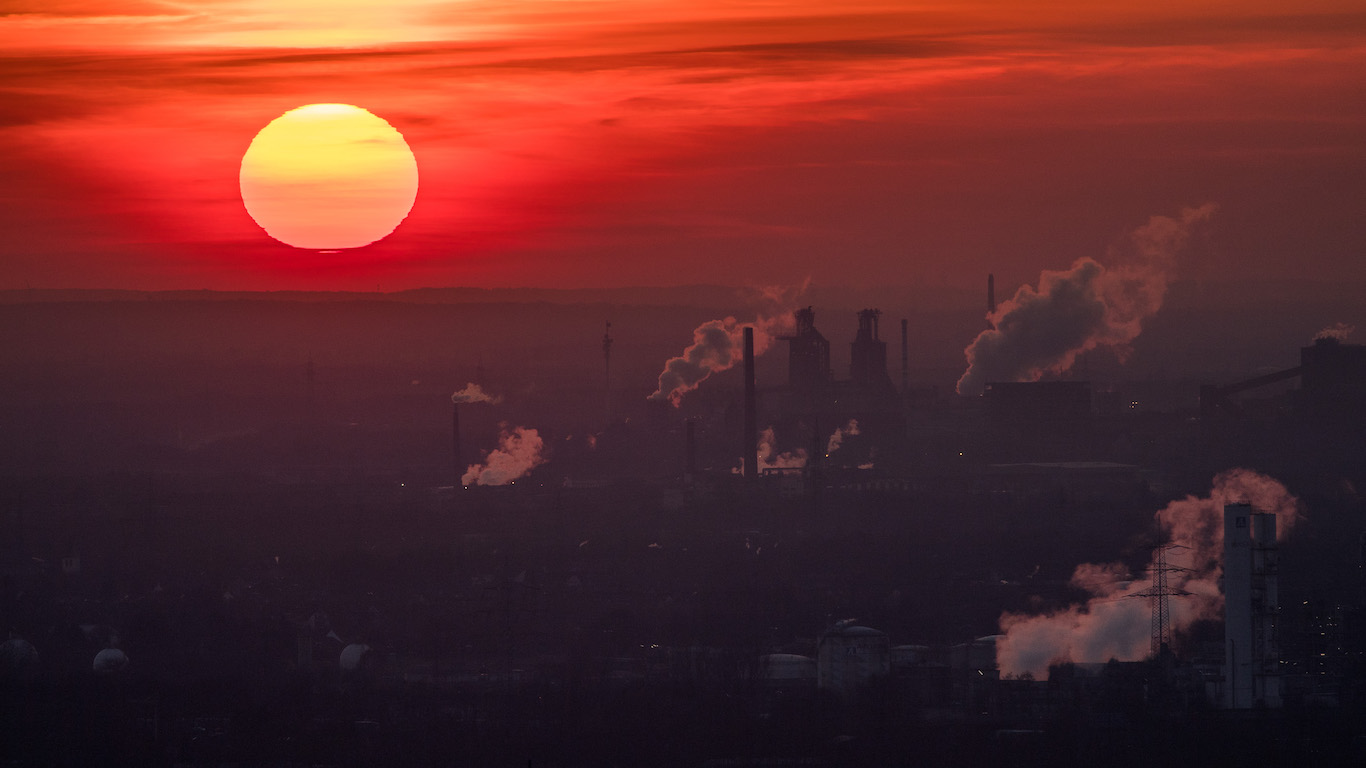
5. Hotter days ahead
In most parts of the U.S., annual minimum and maximum temperatures are expected to rise by at least 5°F by mid-century, and by as much as 10°F by 2100.

6. Sea ice vanishing
The total surface area of the globe covered by sea ice is at its lowest level on record.
[in-text-ad]
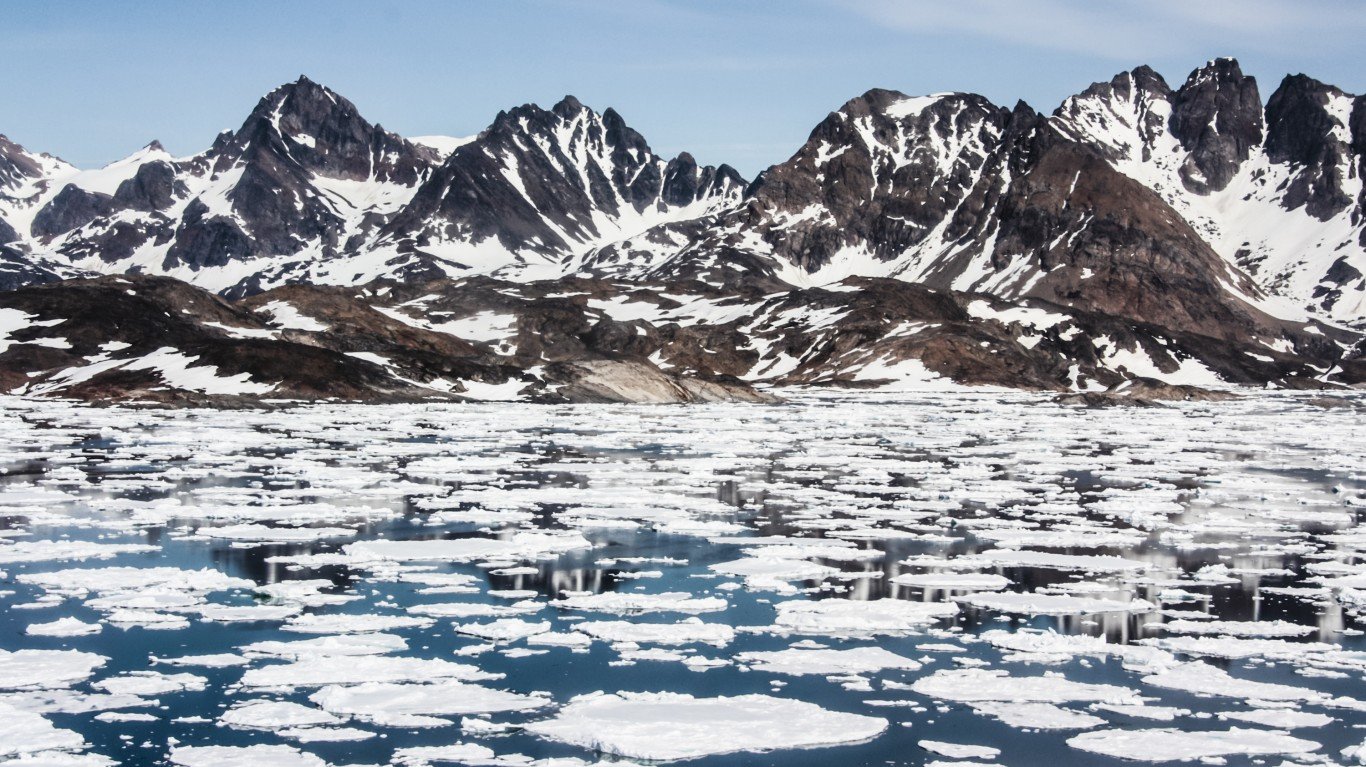
7. Greenland is melting
The Greenland Ice Sheet has been melting, and at an accelerating rate. On one day in July 2012, melt occurred across 98.6% of the ice sheet.
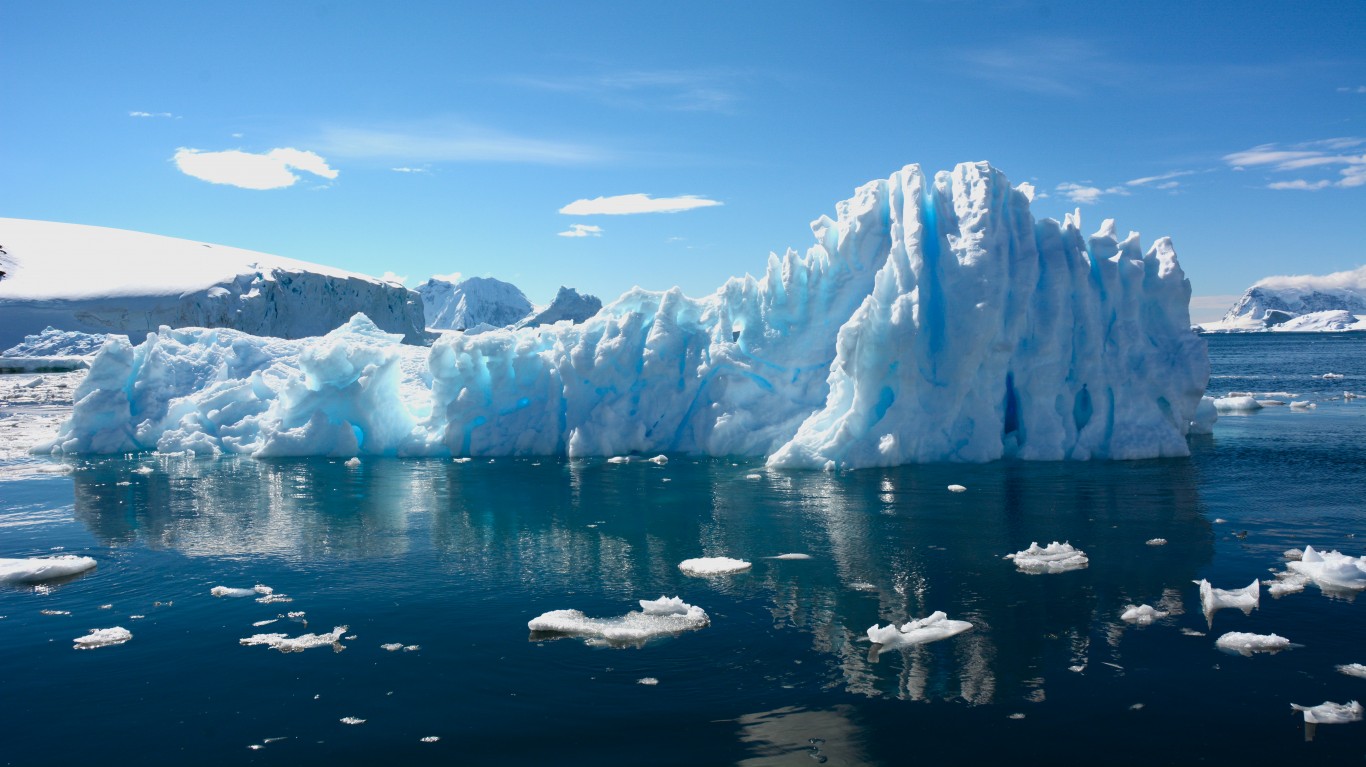
8. Antarctica is melting
Antarctic sea ice minimum levels in March 2017 were the lowest on record.

9. The Arctic is melting
Arctic sea ice has declined 34% between 1979 and 2018. Climate models project the Arctic Ocean could be free of ice in the summers by mid-century.
[in-text-ad-2]
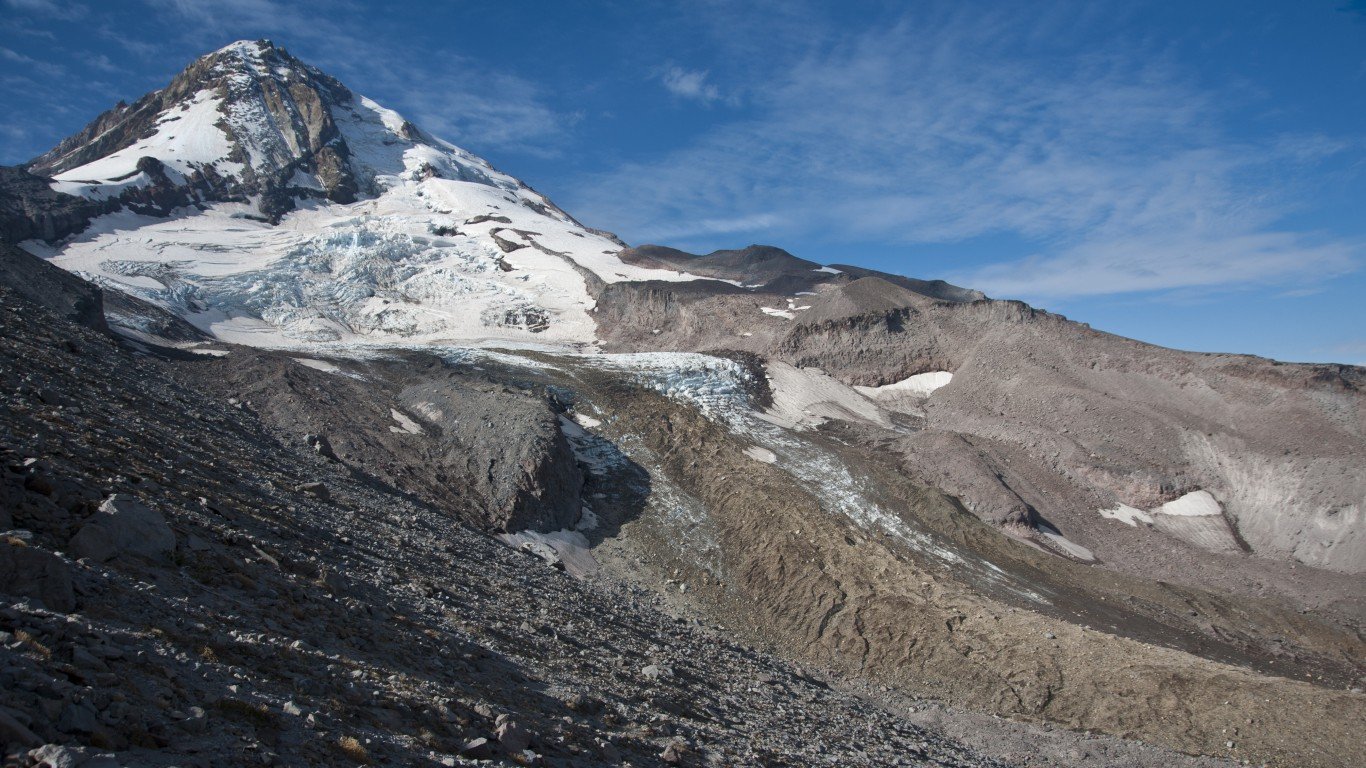
10. Glaciers are vanishing
The vast majority of glaciers on earth are shrinking, many at alarming rates.

Average global sea levels have increased by at least 8 inches since 1900.
[in-text-ad]
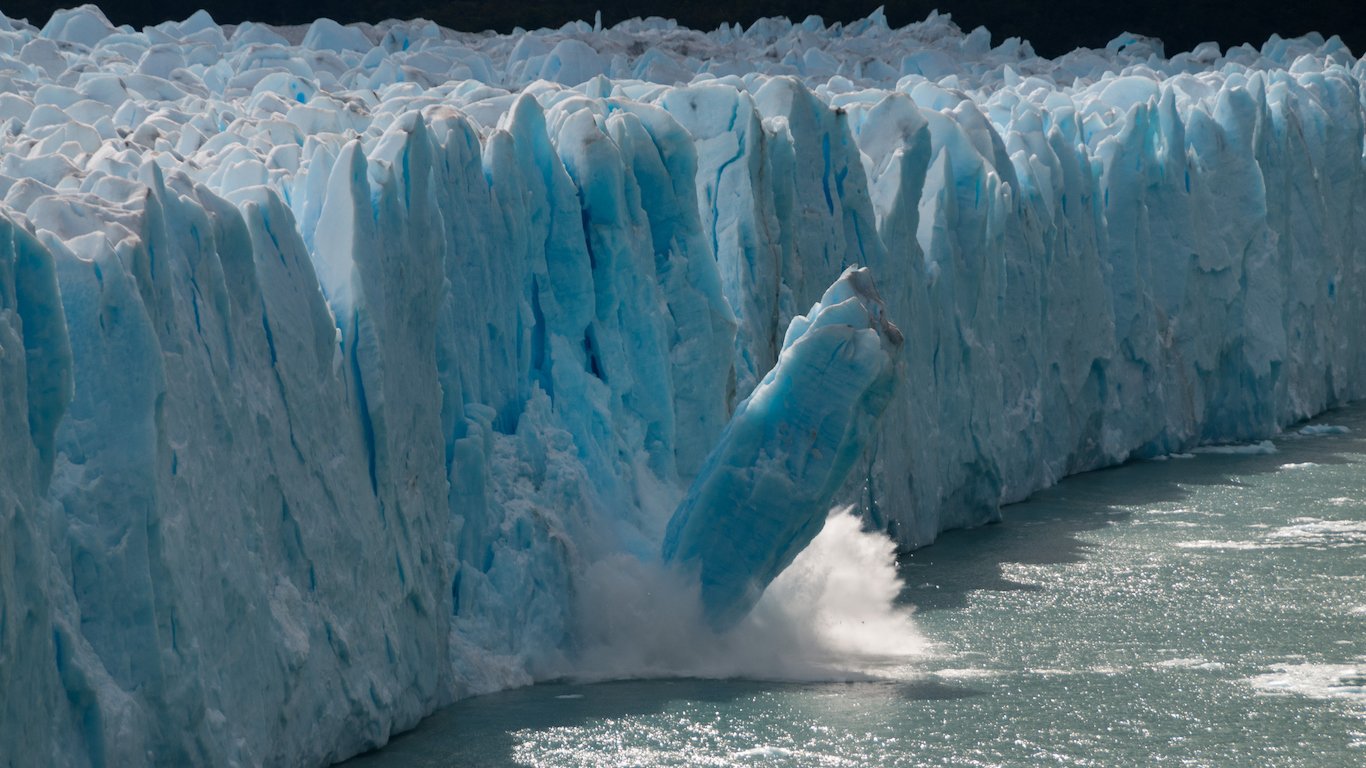
12. Sea level rise is accelerating
Since 1993 alone, sea levels rose 3 inches, or nearly half of the total rise since the turn of the 20th century.
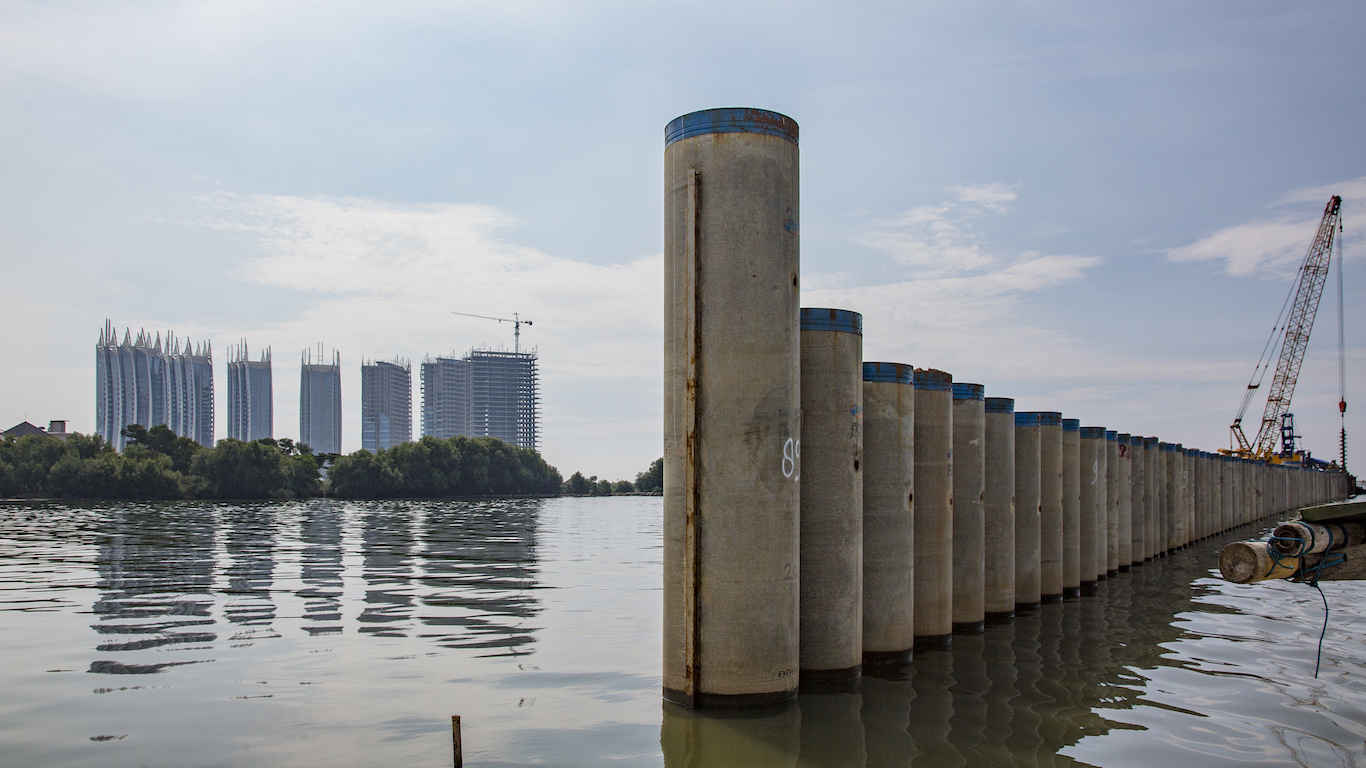
13. Future sea levels
Under the best-case scenario, scientists are now concluding that average sea levels are expected to rise by an additional 1 to 4 feet by the end of the century. A worst-case scenario could see levels rise by more than 8 feet.
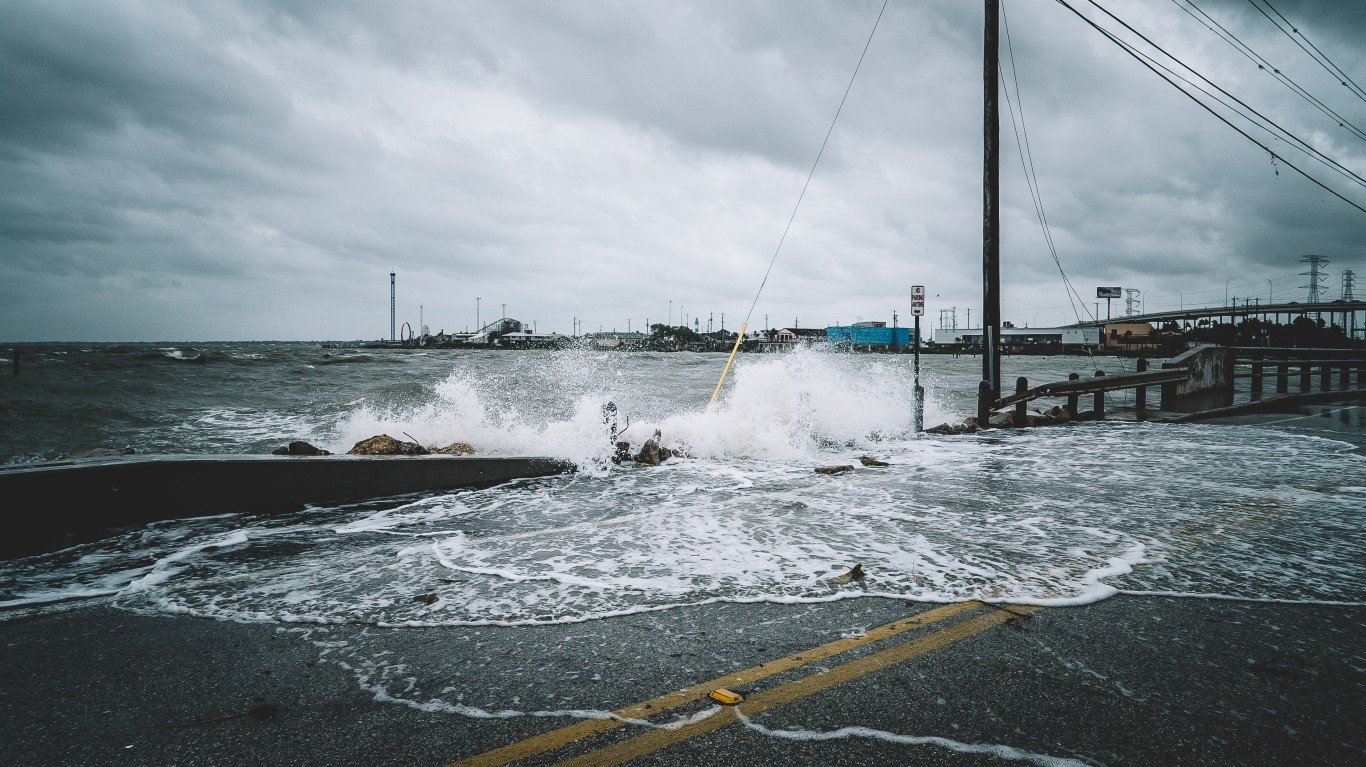
14. Flooding in the US
Rising sea levels may have already increased flooding in the United States. Today, over 90 American coastal communities flood at least partially 26 times per year. Within the next two decades, over 170 cities will be affected by chronic flooding.
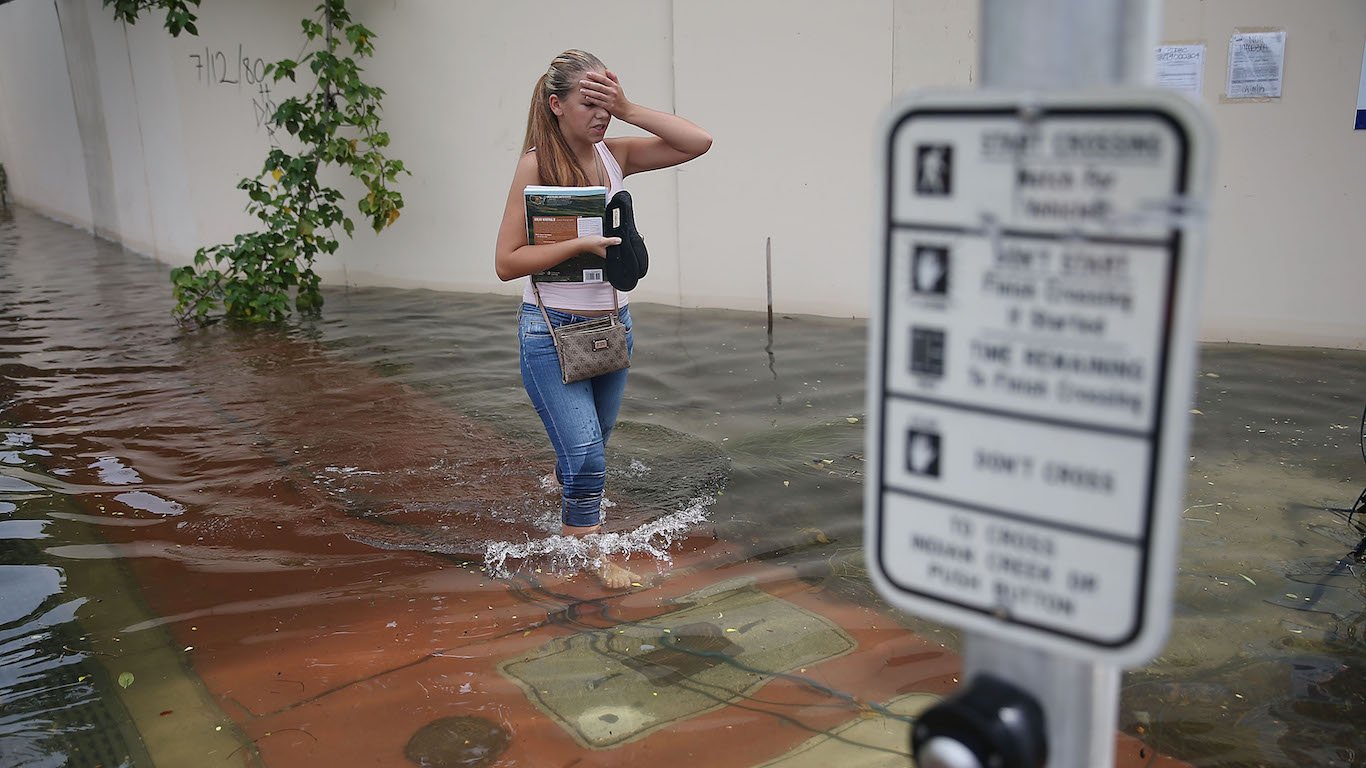
15. Miami underwater
In Miami-Dade County alone, almost $15 billion worth of property is at risk of flooding in the next 15 years.
[in-text-ad-2]

16. Growing seasons have changed
Agricultural growing season in the United States, particularly the west, has lengthened in recent years.

17. Allergy season has lengthened
Pollen season in the United States started three days earlier on average between 2001 and 2010 compared to the 1990s.
[in-text-ad]

18. More heat waves
The total global land area that has 30 days of extreme heat per year has roughly doubled since 1998.
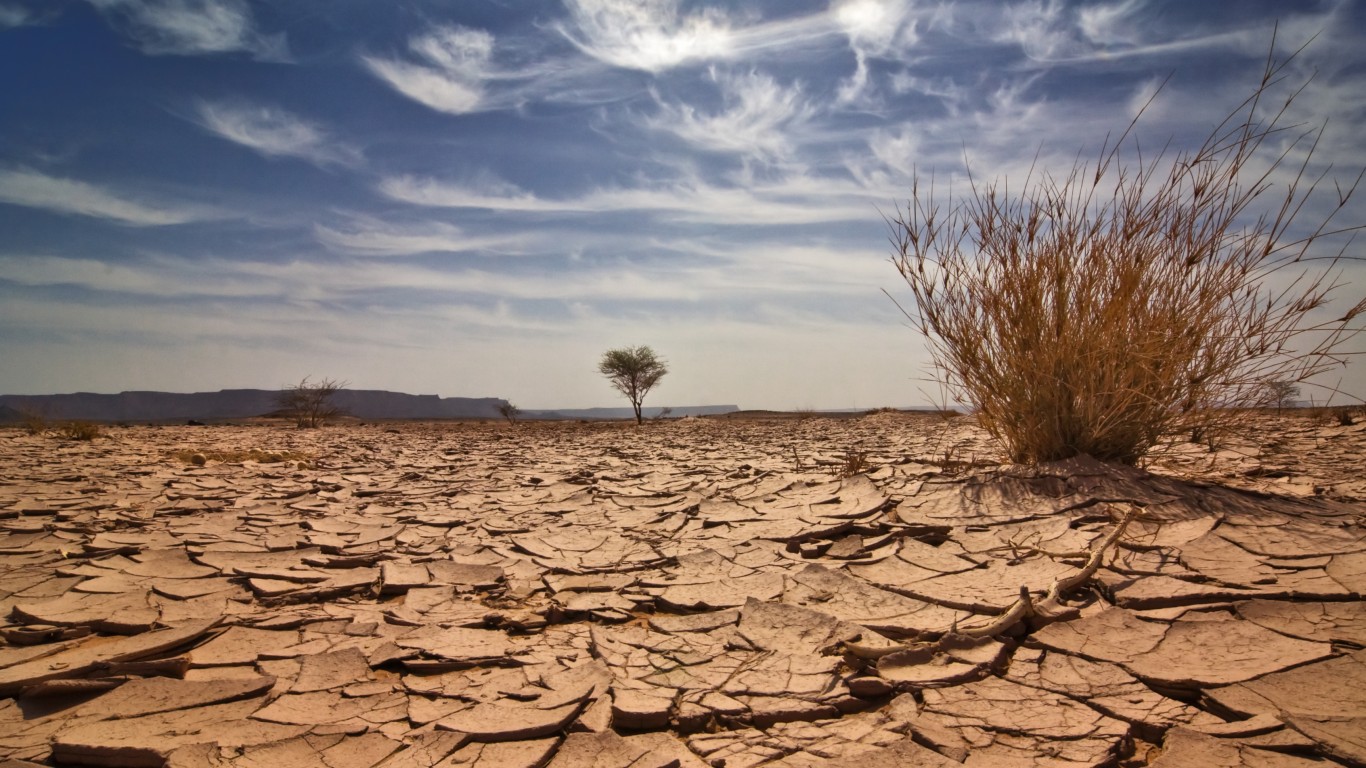
19. Increasing drought
If the increase in global average surface temperature reaches the 1.5°C mark, which it is almost certain to do, 350 million additional people will be exposed to severe drought regularly.
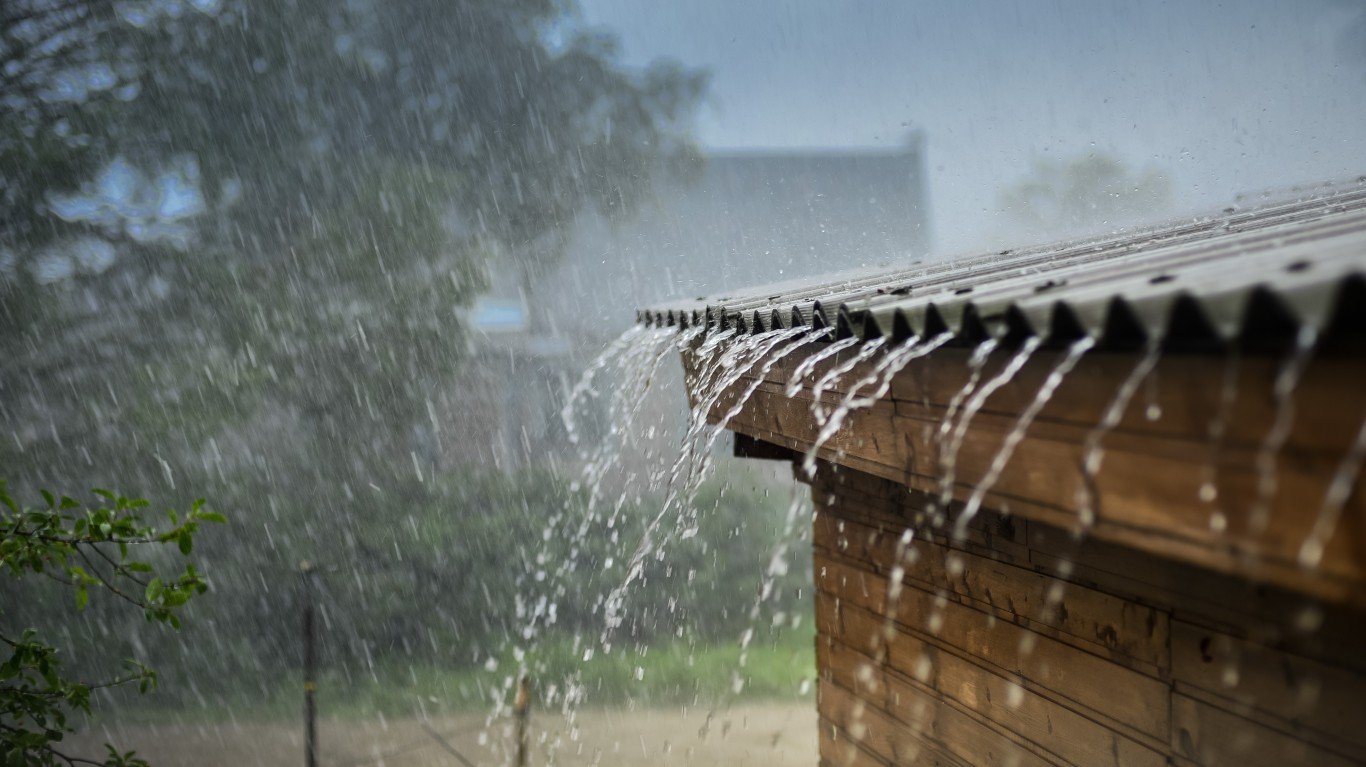
20. More global precipitation
More water vapor in the atmosphere as a result of global warming has led to an 8.5% increase in annual daily precipitation worldwide since 1900.
[in-text-ad-2]

21. More precipitation in the US
Annual precipitation in the United States has increased by approximately 4% between 1901 and 2015.

22. Less snow cover
Snow cover in the Northern Hemisphere has decreased by about 0.2 million square miles since the 1970s.
[in-text-ad]
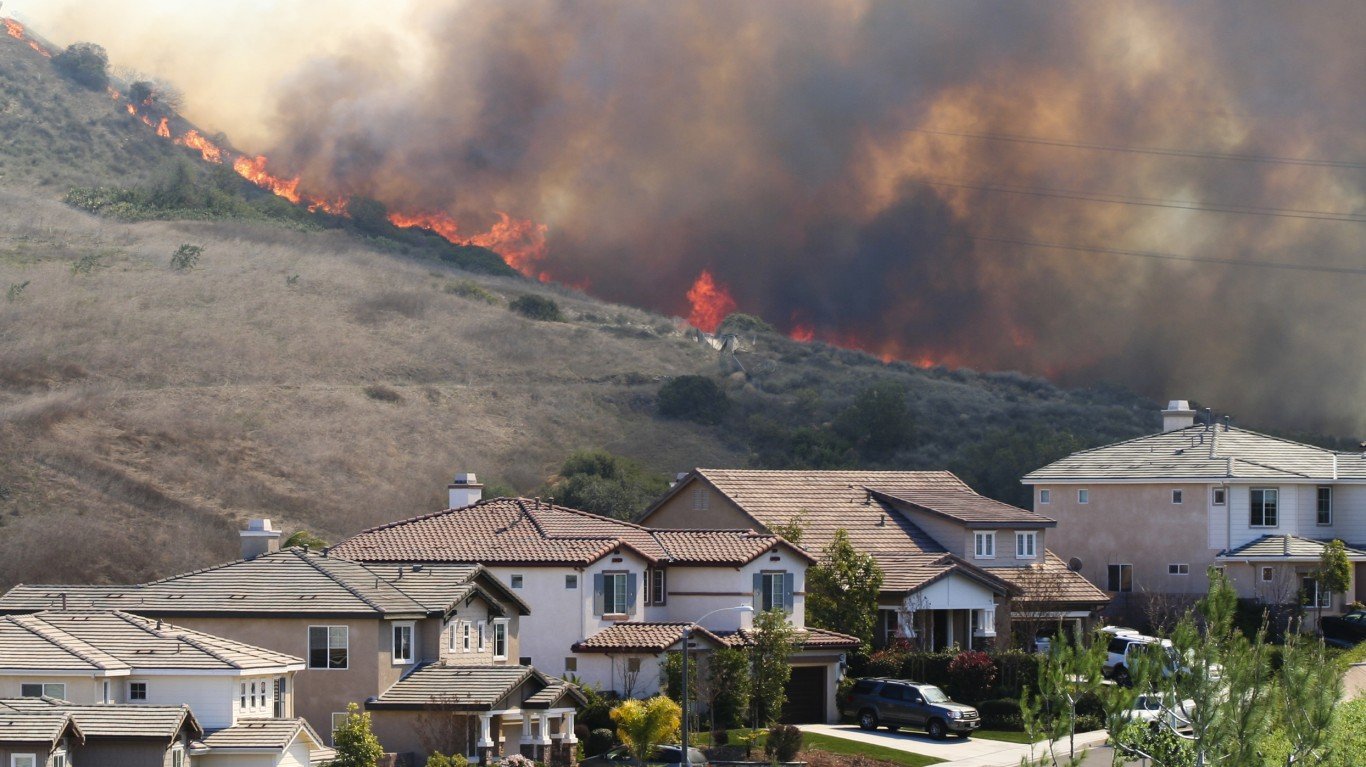
23. Forest fires more common
Since the turn of the century, there have been 10 years in which at least 7 million acres burned. This has only happened once between 1956 and 1999.

24. More acidic ocean
The ocean has absorbed some 30% of the carbon dioxide emitted from man-made sources, resulting in acidification levels and other changes in the water’s chemistry that have not been seen in over 65 million years.
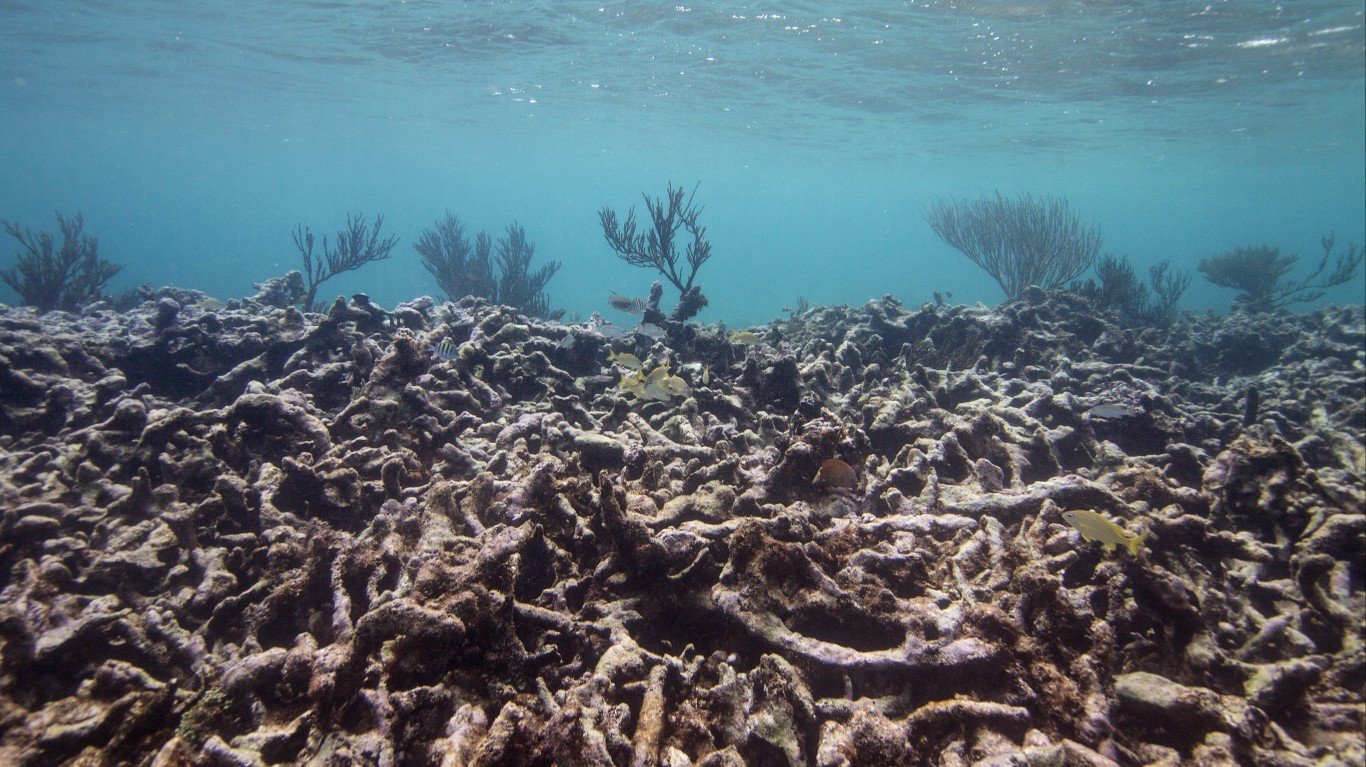
25. Dying coral reefs
Coral reefs are dying at alarming rates due to a number of reasons, including ocean water pollution and warming, overfishing, and other human activity.
[in-text-ad-2]

26. Coral extinction
Coral reef death will likely get much worse. The IPCC estimates that average surface temperature reaching the 1.5°C mark will lead to a 70% to 90% loss of coral reefs in the coming years.

27. Widespread extinction
Global warming has already affected the habitats of numerous species, and as temperatures continue to rise, conditions will become even worse.. A 0.5°C increase in global average temperature could put as much as 30% of all species on Earth at risk of extinction.
Take the quiz below to get matched with a financial advisor today.
Each advisor has been vetted by SmartAsset and is held to a fiduciary standard to act in your best interests.
Here’s how it works:
1. Answer SmartAsset advisor match quiz
2. Review your pre-screened matches at your leisure. Check out the
advisors’ profiles.
3. Speak with advisors at no cost to you. Have an introductory call on the phone or introduction in person and choose whom to work with in the future
Take the retirement quiz right here.
Thank you for reading! Have some feedback for us?
Contact the 24/7 Wall St. editorial team.